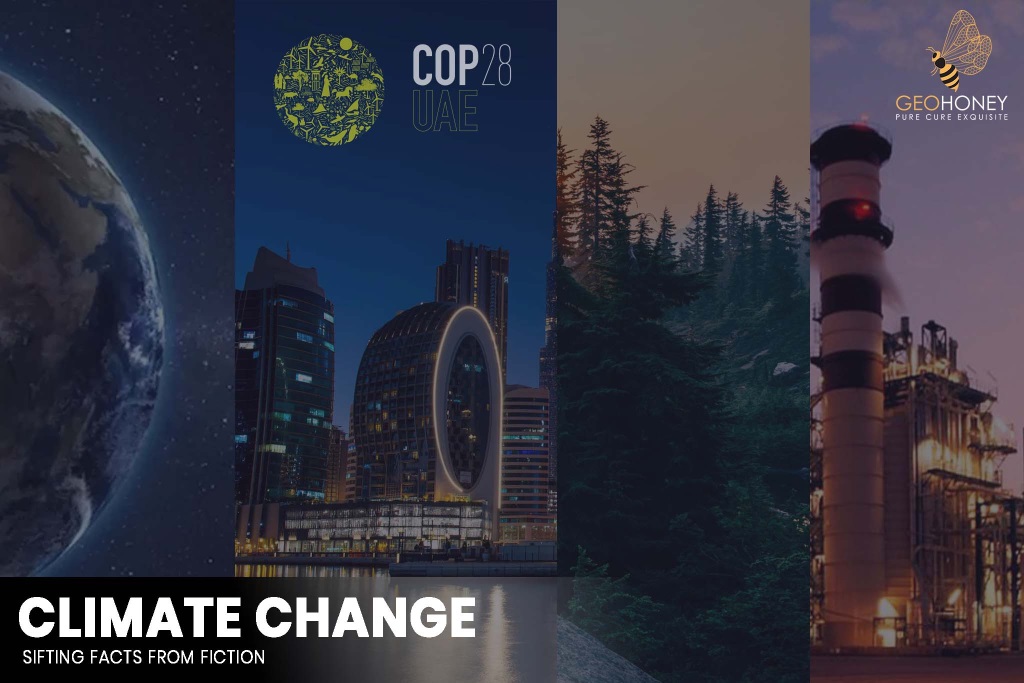- Tokyo: 18:34
- Singapore: 17:34
- Dubai: 13:34
- London: 09:34
- New York: 04:34
Sorting Out The Truth From The Myths of Climate Change

As the COP28 meeting in Dubai approaches, the criticism of oil and gas producers from certain Western circles – officials and organisations — has increased.
To be honest, coordinated campaigns against oil and gas producers are nothing new. These groups, with the assistance of some sympathisers in the worldwide media, spread half-baked hypotheses to buttress their assertions in order to discredit or blame the opposing party for the difficulties at hand. This time, they're blaming hydrocarbon manufacturers for the crisis, citing "this year being the hottest" in human history. Their primary aim is members of the Organisation of Petroleum Exporting Countries.
However, it appears that these detractors purposefully prefer to ignore information such as the fact that there are far worse pollutants on Earth that have contributed to the planet's temperature rise. They frequently overlook the fact that the Western industrialised nations have been releasing greenhouse gases for the last 200 years, far before others, and that countries such as the United States, the United Kingdom, and Germany continue to subsidise coal mining, which is the second largest source of pollution after greenhouse gases. Anyone can independently verify the veracity of these assertions.
I'd like to give some additional data and figures to back up my claim. Last year, the Netherlands and the United Kingdom granted licences to businesses to explore for oil, indicating that they expect oil and gas to remain their primary sources of energy for the foreseeable future.
The fact that the United States and Russia are fighting over who will extend energy lines from the East to Europe via the Mediterranean, via its regional allies, implies that oil and gas will be part of the West's long-term future ambitions.
Europe and the rest of the globe continue to rely significantly on oil and gas, and the fact that any change would take a long time implies that, at least in my opinion, reliance on oil and gas will continue to prevail for the next 100 years. It fascinates me that Western leaders come to COP meetings in private planes powered by hydrocarbons and then proclaim the end of the oil era.
I'd like to ask a question as well. Will any of the coal mining and oil-producing Western countries dare to reduce coal subsidies? No, it does not. I know this for a fact since a German minister informed me so many years ago when I was representing Saudi Arabia as a top negotiator at COP meetings. Thousands of households, he said, rely on that industry. So today I ask them: Will oil giants in the West allow their own states to shut them down first before preaching to other countries?
I agree that the world needs to diversify its energy sources. Climate change is a natural phenomena that has been from the beginning of time, and human activity cannot halt it, but it does contribute to it. Nobody denies it. However, the West's wars, with nuclear bombs launched in the oceans and on land, continuous subsidies to the coalmining and cow raising sectors, and deforestation are far more polluting than oil or gas.
The year 2030 does not herald the end of oil, but it does usher in a new era in which states must act responsibly in terms of consumption.
Saudi Arabia and other GCC energy producers, on the other hand, are working assiduously on well-planned agendas towards a greener future, with Saudi Arabia just declaring its net-zero carbon strategy. I wouldn't go any further than that — you can read about it in my new book "The Blame Game: Industrial States vs. Oil," which discusses the agenda-driven struggle over climate change.
Source: arabnews.com




If the great countries are fighting over how to extend the energy lines from the East to Europe, how would they resolve this climate change. There's nothing new anymore.